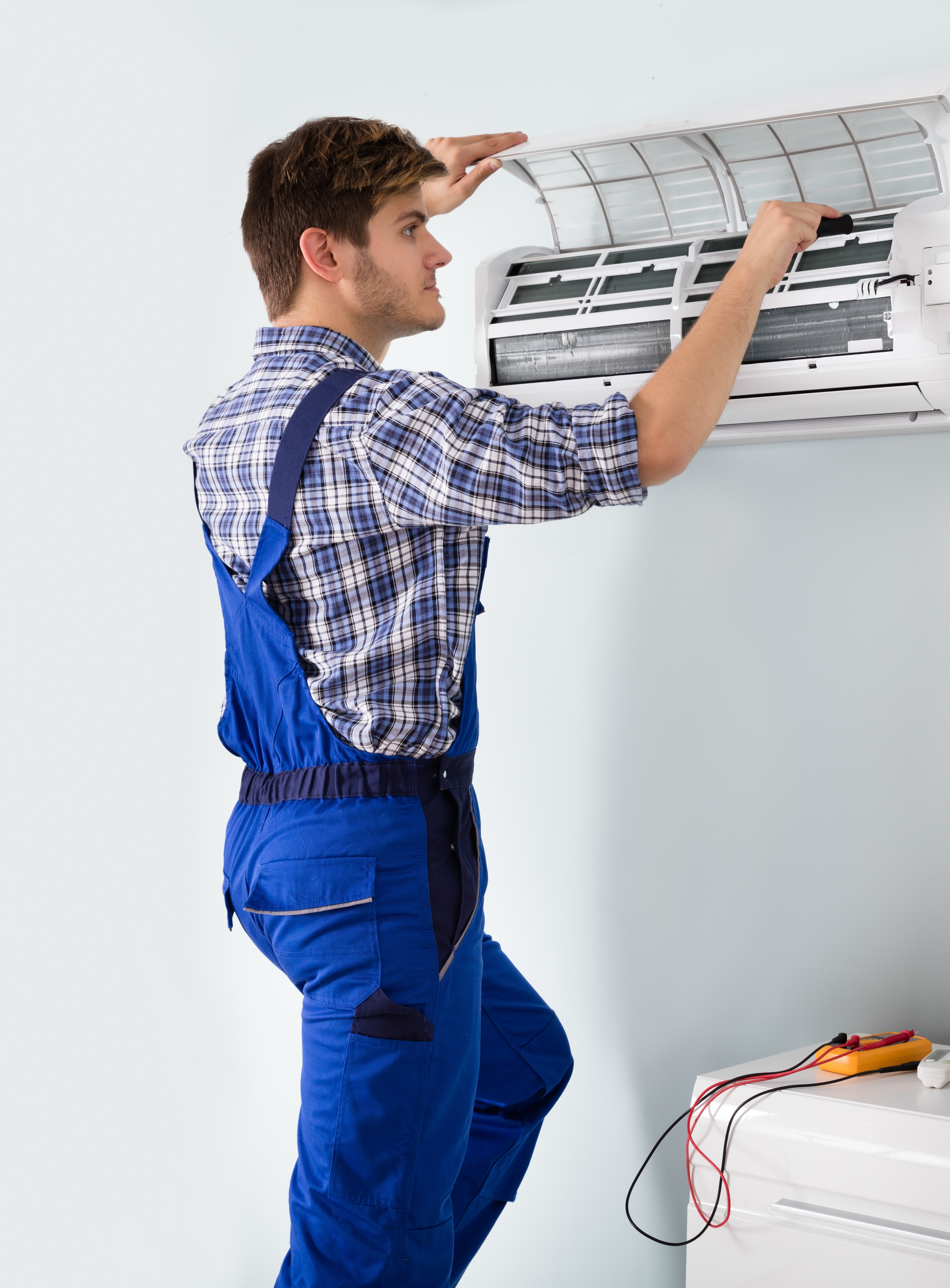







Simply enter the service you need, and your details then press "Spetz-it".
You'll be connected immediately to a nearby top-rated service provider.
Your rating is important. So you can help other customers get the best specialist too.
To hire the best local air conditioning installer in the UK, consider these steps:
By following these steps and conducting thorough research, you can hire the best local air conditioning installer in the UK to meet your needs and ensure a successful installation process.
Air conditioning installers in the UK must adhere to relevant laws, regulations, and industry standards to legally perform their work. Here are some of the tasks and responsibilities that air conditioning installers can typically undertake within the confines of the law:
By adhering to these legal requirements and industry standards, air conditioning installers can perform their work safely, effectively, and legally in the UK.
Air conditioning installers in the UK provide a range of services related to the design, installation, maintenance, and repair of air conditioning systems. Here are some of the jobs that air conditioning installers can help with:
Overall, air conditioning installers play a vital role in providing efficient, comfortable, and reliable cooling solutions for residential, commercial, and industrial properties in the UK.
The cost of hiring an air conditioning installer in the United Kingdom can vary depending on several factors, including the type and size of the air conditioning system, the complexity of the installation, the location, and the installer’s experience and reputation. Here are some factors to consider when estimating the cost:
As a rough estimate, air conditioning installation costs in the UK can range from a few hundred pounds to several thousand pounds, depending on the above factors. It’s advisable to obtain quotes from multiple installers and compare pricing, services offered, and reputation before making a decision. Be sure to clarify any potential additional costs and ensure that the quote includes all necessary equipment, labour, and materials.
When hiring a local air conditioning installer in the UK, asking the right questions can help ensure you find a qualified and reliable professional. Here are some questions you may want to ask:
– What qualifications and certifications do you have as an air conditioning installer?
– How many years of experience do you have installing air conditioning systems?
– Are you a member of any professional associations or trade organizations?
– What types of air conditioning systems do you install? (e.g., split-system, ducted, multi-split)
– Do you provide design services to assess cooling requirements and recommend suitable systems?
– Do you offer additional services such as repairs, maintenance, or indoor air quality solutions?
– Are you properly licensed and insured to perform air conditioning installation work in the UK?
– Can you provide proof of liability insurance to cover any potential damages or accidents during the installation process?
– How do you determine pricing for air conditioning installation projects? (e.g., flat fee, hourly rate, per-project pricing)
– Can you provide a detailed estimate for the installation, including all costs such as equipment, labour, and materials?
– Are there any potential additional charges or fees that I should be aware of?
– Do you offer any warranties or guarantees for your workmanship and the air conditioning equipment you install?
– What is your policy for addressing any issues or defects that may arise after the installation is complete?
– Can you walk me through the installation process, including any necessary preparations or site inspections?
– How long do you anticipate the installation will take, and what is the expected timeline from start to finish?
– Will you handle any necessary permits or approvals required for the installation?
– What brands or manufacturers of air conditioning equipment do you work with?
– Can you recommend specific equipment or brands that are suitable for my property and budget?
– Do you offer options for energy-efficient or environmentally friendly systems?
– Can you provide references from previous clients that I can contact for feedback?
– Do you have any testimonials or reviews from satisfied customers that I can review?
– Have you completed any projects similar to mine that you can showcase?
– Do you offer maintenance plans or servicing contracts for installed air conditioning systems?
– What recommendations do you have for ongoing maintenance to ensure the longevity and efficiency of the system?
– Are you available for emergency repairs or servicing if needed?
– How do you prefer to communicate with clients during the project? (e.g., phone, email, in-person meetings)
– Will you provide regular updates on the progress of the installation and promptly address any questions or concerns I may have?
– Who will be my main point of contact throughout the installation process?
By asking these questions, you can gain a better understanding of the air conditioning installer’s qualifications, services, pricing, and approach to customer service, helping you make an informed decision when hiring for your air conditioning installation needs.